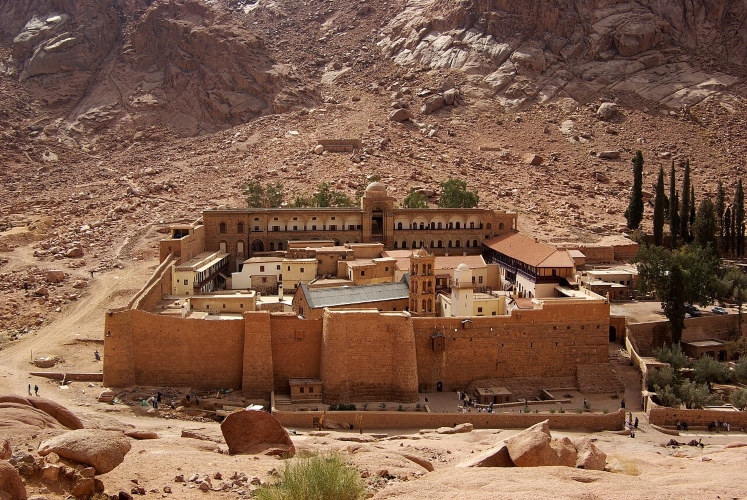Greece Grants Legal Recognition to St. Catherine’s Monastery of Sinai After 15 Centuries

Πηγή Φωτογραφίας: eurokinissi//Greece Grants Legal Recognition to St. Catherine’s Monastery of Sinai After 15 Centuries
A Historic Step for a Sacred Institution
In a move hailed as a historic milestone, Greece has officially granted legal personality to the Holy Monastery of St. Catherine of Sinai, for the first time in its 15-century history. The measure was introduced in Parliament on Friday by Education, Religious Affairs, and Sports Minister Sofia Zacharaki, as part of a broader legislative bill addressing religious and educational matters.
“The Greek state affirms its commitment to supporting the mission of the Holy Monastery by safeguarding its interests and legal status,” Zacharaki told the Standing Committee on Cultural and Educational Affairs.
She emphasized that the bill provides clear legal status to a unique religious and cultural institution, while respecting its autonomy and ecclesiastical identity.
Support for Theological Institutions and Foreign Clergy
The legislation also expands access for foreign theology students, aiming to strengthen the Greek Orthodox presence abroad. Notably, up to 10 candidates annually from the Patriarchate of Antioch (citizens of Syria or Lebanon) will now be able to enroll in Greek universities with approval from both the Church of Greece and the Ministry of Foreign Affairs.
“This initiative strengthens the Patriarchate of Antioch and enhances communication with Greek Orthodox communities in Syria,” Zacharaki noted.
Additionally, the bill reinforces Clerical Apprenticeship Schools (SMYK) and Model Ecclesiastical Schools, supporting students from historic Patriarchates, including Constantinople, Alexandria, Antioch, and Jerusalem.
Recognition for the Alevi Bektashi Minority in Thrace
For the first time in Greek legal history, the Alevi Bektashi Muslim minority in Thrace has been granted legal religious status under Law 4301/2014.
“This is a significant step forward for religious freedom,” Zacharaki emphasized. “The Bektashi Alevi community now becomes a recognized religious legal entity in Greece.”
This recognition follows the 2021 licensing of their first house of prayer, representing a broader effort to include minority faiths in the religious landscape of Greece.
Reinforcement of Ecclesiastical Welfare Missions
The law also introduces new provisions to support the charitable missions of religious foundations, streamlining their operations and ensuring they continue serving communities effectively.
Modern Legal Framework for Places of Worship
In a landmark reform, the bill abolishes the outdated legal framework for worship licensing, dating back to Greece’s interwar period (Metaxas regime). A modern, unified legal system will now govern all religious spaces.
“We ensure unhindered religious worship for all communities,” said Zacharaki. “This is a crucial step in aligning our legal code with contemporary standards of religious liberty.”
A New Era for Religious Policy in Greece
The new law not only protects religious freedom, but also strengthens Greece’s international Orthodox role, fosters interfaith inclusion, and modernizes long-standing legal gaps in the domain of worship and education.
“We are not just legislating,” Zacharaki concluded, “We are building bridges—between tradition and modernity, between Greece and its historic communities abroad.”
Διαβάστε όλες τις τελευταίες Ειδήσεις από την Ελλάδα και τον Κόσμο






Το σχόλιο σας